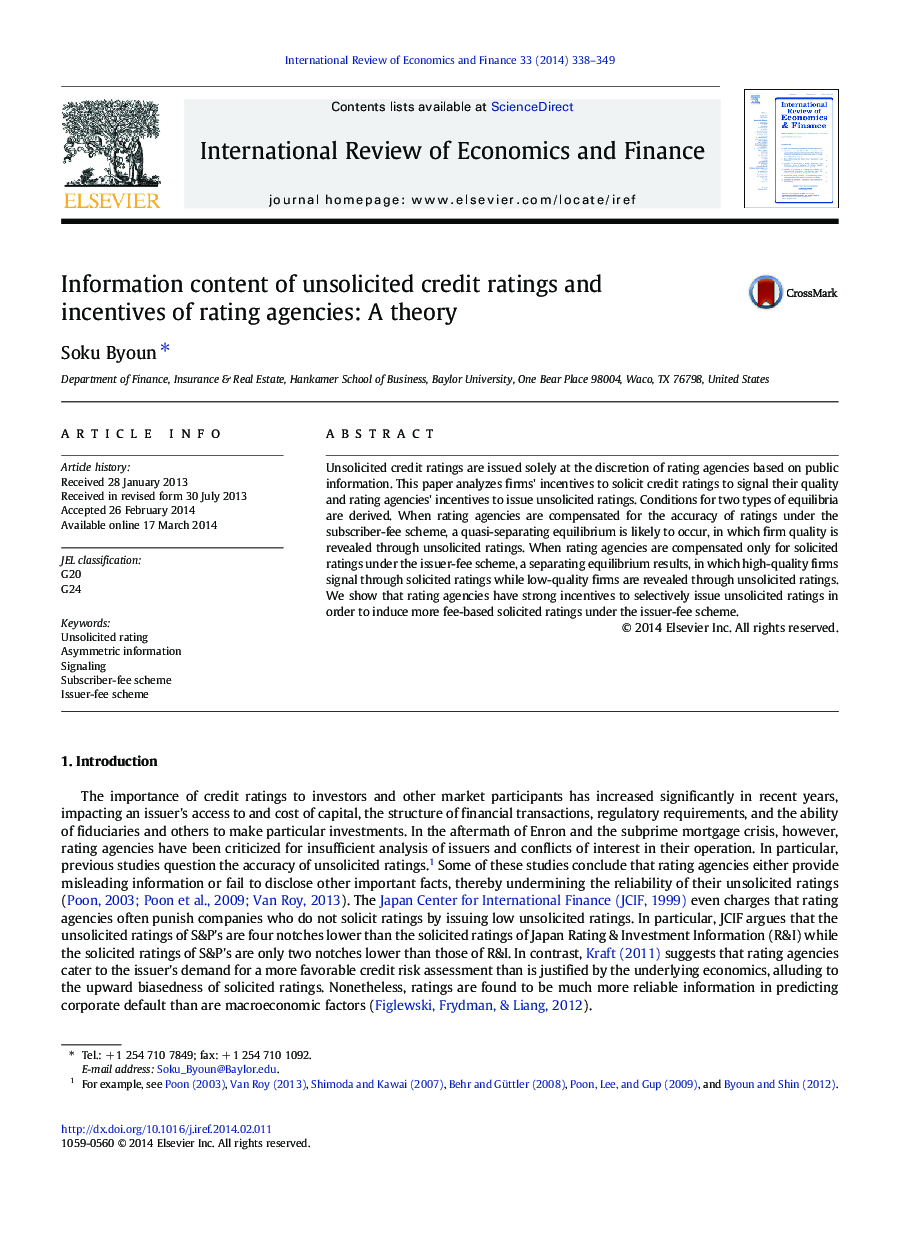| Article ID | Journal | Published Year | Pages | File Type |
|---|---|---|---|---|
| 5083498 | International Review of Economics & Finance | 2014 | 12 Pages |
â¢We analyze firms' decision to solicit ratings the ratings agency's incentive.â¢A bad firm chooses not to signal and its quality is revealed by unsolicited rating.â¢Under the issuer-fee system, the rating agency suppresses some information.
Unsolicited credit ratings are issued solely at the discretion of rating agencies based on public information. This paper analyzes firms' incentives to solicit credit ratings to signal their quality and rating agencies' incentives to issue unsolicited ratings. Conditions for two types of equilibria are derived. When rating agencies are compensated for the accuracy of ratings under the subscriber-fee scheme, a quasi-separating equilibrium is likely to occur, in which firm quality is revealed through unsolicited ratings. When rating agencies are compensated only for solicited ratings under the issuer-fee scheme, a separating equilibrium results, in which high-quality firms signal through solicited ratings while low-quality firms are revealed through unsolicited ratings. We show that rating agencies have strong incentives to selectively issue unsolicited ratings in order to induce more fee-based solicited ratings under the issuer-fee scheme.
